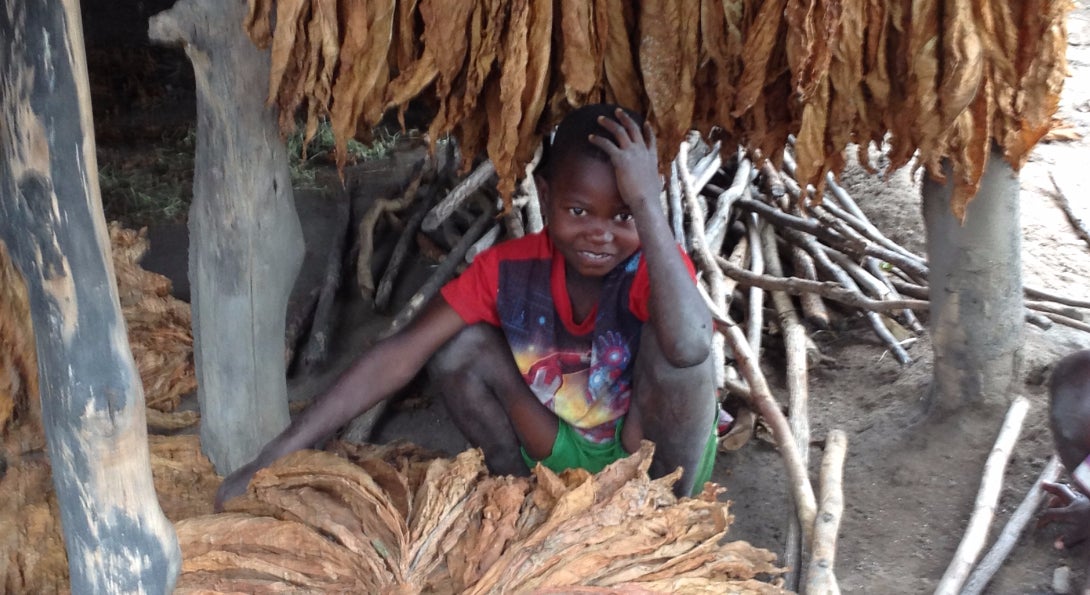SPH faculty lead global tobacco-fighting efforts

Introductory text
When Jeff Drope, PhD, joined the UIC School of Public Health (SPH) faculty roster last September, he brought with him 15 years’ experience tackling one of the globe’s most pressing public health issues: tobacco use, which, despite being fully preventable, contributes to some 8 million deaths each year.
“It’s stunning we have this public health tragedy brought on by our own choices,” said Drope, a research professor in the Division of Health Policy and Administration who joined UIC following an eight-year run as scientific vice president of economic and health policy research at the American Cancer Society (ACS).
Now, Drope is leading SPH’s continued global battle against tobacco use, building upon the ambitious and pioneering work of Frank Chaloupka, PhD, who retired in June after 33 years at UIC.
Addressing tobacco use
A renowned health economist, Chaloupka spent the better part of three decades at UIC researching how policies impact unhealthy behaviors. Chaloupka’s enterprising work included effectively demonstrating that increases in cigarette prices, including tax hikes, sparkedreductions in consumption.
Since 2017, Bloomberg Philanthropies has awarded Chaloupka’s team nearly $25 million in grants to accelerate the development of effective tobacco tax policies in nations with the highest and fastest-growing rates of tobacco use. As the project’s principal investigator (PI), Chaloupka spearheaded a capacity-building effort that has included partnerships with 31 different think tanks across 18 countries. Through training, workshops and sophisticated feedback, Chaloupka’s group has helped the think tanks define clear scopes of work, increase capacity from both a technical and political-economic perspective and refine communications strategies to optimize evidence-based tobacco tax policy.
Though facing a David vs. Goliath-like scenario against the tobacco industry – a juggernaut that boasts $100 billion in annual worldwide sales – Chaloupka’s “Tobacconomics” team has successfully scaled technical capacity and produced strong, credible research showing the costs of tobacco dwarfing its economic benefits via tax revenue and employment. The group’s oft-cited Cigarette Tax Scorecard, which assesses the performance of cigarette tax policies in more than 170 countries, serves a powerful argument for leveraging taxes to reduce the public health burdens of tobacco use and raising constructive revenue.
“This work has been vital and necessary to reverse the global tobacco epidemic,” said Chaloupka, a distinguished professor in the Division of Health Policy and Administration who also directed UIC’s Health Policy Center.
With Chaloupka’s retirement, Drope, who collaborated with Chaloupka frequently while with ACS, now inherits the PI role on the sprawling Bloomberg project.
“If there’s a person to step in, move this forward and expand it, Jeff’s the one to do it,” Chaloupka said.
And certainly, Drope stands motivated to build upon Chaloupka’s spirited work. Charged to shepherd the Bloomberg project to its 2023 completion, Drope is also, with Chaloupka’s close counsel, engaging the New York-based foundation on additional funding to potentially expand the project’s geographic scope as well as its investigation of other health tax areas such as alcohol and sugary beverages.
“An excise tax is one of the most effective tools we have to tackle these persistent public health problems,” Drope said. “Yet, we need people with sophisticated economic understanding because tax policy is such a complex technical area that varies widely across the world.”
Leaving a legacy

In addition to stewarding the Bloomberg project, Drope is running a second globally oriented project centered on the livelihoods of tobacco farmers in Indonesia, Kenya, Malawi and Zambia. In these countries, opponents of tobacco control have slowed, stopped and even reversed tobacco control interventions by arguing that such measures harm smallholder tobacco farmers.
“Some version of, ‘It’ll make them poor and/or unemployed,’” Drope said.
It’s a tale the tobacco industry, which sells an estimated 6 trillion cigarettes each year, has long spun. Yet, Drope and his team are gathering deep evidence about the livelihoods of farmers that continues challenging that wobbly narrative. Funded by the U.S. National Institutes of Health (NIH), Drope’s team is analyzing data relevant to the economics and politics of tobacco farming in these countries, conducting surveys and farmer focus groups and interviewing stakeholders ranging from farmer organization representatives to ministry officials to civil society advocates. The work is illuminating the broader contexts that frame farmers’ livelihoods and propel tobacco cultivation despite its significant public health drain and not-quite-as-advertised economic benefits.
“Our research is starting to have an effect in terms of governments rejecting the tobacco industry’s narrative and making the necessary policy reforms,” Drope said.
The relationship between Drope’s NIH work and the Bloomberg project is unmistakable given that tobacco farming is one of the primary reasons governments cite for not raising tobacco taxes. As Drope said of the projects’ interconnected nature, “Huge synergy all around.” Drope’s team is using methodologies and knowledge developed in the NIH project to inform the Bloomberg project. The group, for instance, has provided strong evidence that Indonesian farmers would be better off growing non-tobacco crops or pursuing other economic activities, while it has also provided support to Zambia’s Ministry of Finance on raising tobacco taxes.
The work also reflects the mission of SPH’s Global Health Program, which aims to lead efforts and foster effective collaborations that promote health and reduce suffering worldwide. Drope, like Chaloupka before him, is a Global Health Program faculty member.
“These are multidisciplinary and bi-directional collaborations that are leading to real improvements in health and livelihood,” said Supriya Mehta, PhD, who heads SPH’s Global Health Program. “Their high-impact work is founded in rigorous research and technical expertise, leading to advances that everyone can get behind on a truly global scale.”
For Chaloupka and now Drope, battling tobacco is a critical undertaking with the potential to improve public health, bolster quality of life and leave a legacy far beyond UIC.
“Tobacco control is a public health best buy,” Drope said. “I believe our work is having a genuine positive impact at chipping away at the devastation tobacco brings to the world.”